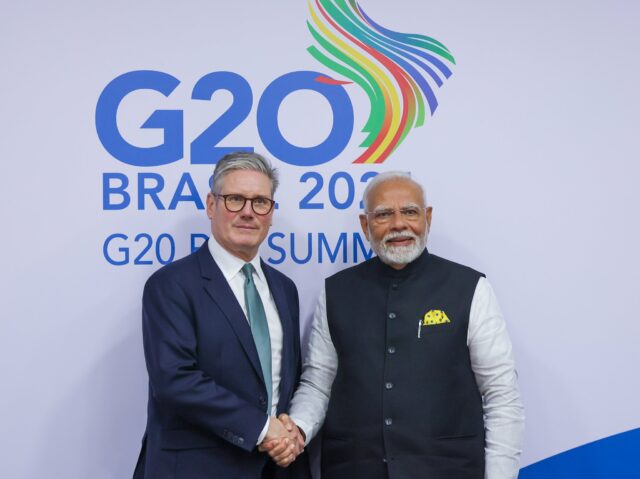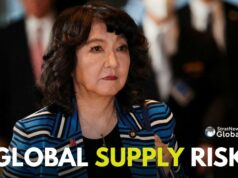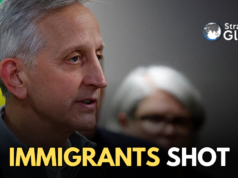
India will make a strong pitch against Khalistani activists when Prime Minister Narendra Modi holds talks with his UK counterpart Keir Starmer on Wednesday. Modi will also seek extradition of key Indian fugitives sheltering in that country.
But the focus is expected to be on the landmark and long pending India-UK Free Trade Agreement (FTA), the signing of which will mark a diplomatic milestone in bilateral relations.
Foreign Secretary Vikram Misri, addressing a special media briefing in New Delhi on Tuesday, said the visit offers an opportunity to deepen the Comprehensive Strategic Partnership.
Khalistani Extremism
But Khalistani extremism is a major concern in Delhi, also given the freedom with which they operate in the UK.
“The issue of the presence of Khalistani extremists, bodies close to these people, is something that we have brought to the attention of our partners in the UK. We will continue to do so,” Misri said. “This is a matter of concern not only to us but should be a matter of concern to our partners as well, because this impacts social cohesion and social order in these countries.”
India has long accused the UK of not doing enough to curb pro-Khalistan propaganda and the vandalism of Indian diplomatic premises in London, including the storming of the Indian High Commission by extremists in 2023.
Extradition of Fugitives
Misri confirmed that the extradition of Indian fugitives, including economic offenders, remains an unresolved issue and will feature in the leaders’ discussions.
“There are a few questions related to fugitives from Indian law and justice in the UK. These have been a matter of discussion between both sides,” he said, adding that India continues to press for their return. “Obviously, there is a legal process that such requests go through, and we continue to follow up very closely.”
Notable names in this context include Vijay Mallya, Nirav Modi, and other individuals wanted in India on charges ranging from financial fraud to terrorism.
Free Trade Agreement
Perhaps the most anticipated outcome of the visit is the signing of the India–UK FTA in the making since January 2022. The final text was concluded in May after 14 rounds of negotiations, and the agreement is expected to be formally signed in London on July 24, with Commerce Minister Piyush Goyal accompanying PM Modi for the occasion.
“The two sides have been in very close touch following the conclusion of FTA negotiations on May 6,” Misri said. “We will update you on the final details at the appropriate time.”
The FTA aims to double bilateral trade to $120 billion by 2030, eliminate tariffs on 99% of Indian exports, and significantly boost Indian access to the UK services sector.
Key Indian gains could include:
- Tariff elimination on textiles, garments, seafood, gems, and jewellery
- Market access for Indian IT, engineering, and educational services
- Work mobility for Indian professionals, including chefs, yoga instructors, and engineers.
- Commitments on digitally delivered services and mutual recognition of professional qualifications
For the UK, the deal opens opportunities to export whisky, gin, and automobiles under relaxed tariff regimes, with phased reductions from over 100% to 10% on automotive imports. UK companies like Tata-JLR stand to benefit under the automotive quota provisions.
Energy Security and Global Standards
Misri also touched upon the broader geopolitical discussions expected during the visit, particularly around energy security and climate finance. He reiterated India’s stand for balanced global frameworks.
“We have been very clear that energy security is a top priority for the Government of India… It is important not to have double standards and to have a clear-eyed perception of what the global situation is,” he said, subtly alluding to Western pressure on India over Russian oil purchases amid the Ukraine conflict.
Strategic Partnership
Prime Minister Modi’s visit, at the invitation of UK Prime Minister Keir Starmer, comes as both countries look to expand cooperation in defence, infrastructure financing, education, and innovation.
- The UK–India Infrastructure Financing Bridge, coordinated between NITI Aayog and the City of London, is helping fund green infrastructure projects in India.
- In education, the University of Southampton has opened a campus in Gurugram under India’s New Education Policy, and other UK universities may soon follow suit.
- Bilateral trade reached $55 billion in 2023–24.
- The UK is India’s 6th largest foreign investor with cumulative investments of $36 billion, while India has invested over $20 billion in the UK.
What’s Pending?
While the FTA and Social Security Agreement (or Double Contribution Convention) are ready for signing, the Bilateral Investment Treaty (BIT) remains under negotiation. Originally intended to be concluded alongside the FTA, differences in investment protection clauses have delayed its finalisation.
However, officials say the visit marks a significant reset in India-UK ties.
“This visit, though short, will give both leaders the opportunity to review the entire gamut of the bilateral relationship,” Misri said.
PM Modi will also call on King Charles III and interact with leading UK and Indian business figures during his two-day visit.




